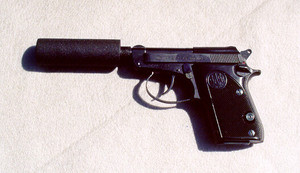Many people ask what is a NFA Trust and how is it different from a living trust or revocable living trust. A NFA trust is a trust document that has been customized to deal with the specific legal issues surrounding the transfer, possession, and use of firearms that are restricted by the National Firearms Act. These items include silencers, short-barreled rifles, short-barreled shotguns, machine guns, AOW’s and destructive devices. Many people do not know that in most states it is legal to own some or all class III firearms.
There are many types of revocable trusts. We work with lawyers in over 30 states to provide the best protection for your family and friends though a NFA Firearms Trust. Each trust is customized to deal with the unique issues of ownership and possession that are required for ownership in your state. An interview process is necessary to determine who must be included in the trust, or how to make changes not to include those people. In addition, it is important to determine the best way to allow others access to the weapons if you choose.
When creating a trust for NFA items, it is important to make sure the trust is valid, you understand how to use the trust and what the trust does, how to make a purchase that does not create a technical violation of the NFA as well as how to avoid the common violations including constructive possession and transfer. Many people believe that it is OK to let someone else use your Class 3 weapon if you are present. A careful reading of the NFA show that the word transfer includes this type of action and thus is prohibited under the NFA.
 NFA Gun Trust Lawyer Blog
NFA Gun Trust Lawyer Blog


 Class 3 Weapons include suppressors, , short barrel rifles, machine guns, and other destructive devices.
Class 3 Weapons include suppressors, , short barrel rifles, machine guns, and other destructive devices.